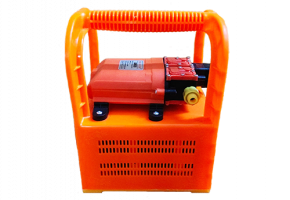
Agriculture tools are specialized instruments and machinery used in farming and cultivation. They include plows, tractors, seeders, and more, aiding farmers in various tasks to enhance agricultural productivity. In this article, we will explore some agriculture tools, their uses, and their features.
Plow
Use: Plows are used for breaking and turning over the soil, making it ready for planting. They help bury weeds and crop residue, improving soil structure.
Features: Plows come in various types, including moldboard plows and disc plows. They usually have a sturdy metal blade and can be pulled by animals or tractors.
Hoe
Use: Hoes are hand tools used for weeding, digging, and cultivating soil. They are especially handy for removing weeds around crops.
Features: Hoes have a flat blade attached to a long handle. They come in different shapes, including the common rectangular and heart-shaped designs.
Tractor
Use: Tractors are versatile workhorses on the farm, used for plowing, tilling, planting, and transporting heavy loads.
Features: Tractor typically has powerful engine, multiple gears, and a PTO (power take-off) to operate various attachments like plows and seeders.
Harvester
Use: Harvesters are specialized machines designed to gather ripe crops, such as wheat, corn, and rice, efficiently.
Features: They have cutting mechanisms, conveyor belts, and storage bins for collecting and processing crops. Modern harvesters are often self-propelled.
Sprayer
Use: Sprayers are essential for applying pesticides, herbicides, and fertilizers to crops.
Features: They have tanks for holding chemicals and a nozzle system for even distribution. Some are manual, while others are mounted on tractors.
Tiller/Cultivator
Use: Tillers and cultivators are used for preparing seedbeds, breaking up compacted soil, and incorporating organic matter.
Features: They have rotating blades or tines that churn the soil, making it suitable for planting.
Seeder/Planter
Use: Seeders or planters are machines used for the precise planting of seeds or seedlings. They ensure proper spacing and depth, optimizing crop growth.
Features: Modern seeders are often tractor-mounted and have seed hoppers with mechanisms for metering and planting seeds at desired intervals.
Irrigation System
Use: Irrigation systems provide controlled water supply to crops, ensuring consistent moisture levels.
Features: They can be drip systems, sprinklers, or flood systems. Modern irrigation systems often incorporate automation for efficient water use.
These are just a few examples of the many agriculture tools available to modern farmers. Each tool serves a specific purpose, helping farmers increase productivity and achieve better yields. As technology advances, these tools continue to evolve, becoming more efficient and user-friendly. Agriculture tools are the unsung heroes behind the world's food production, and their importance cannot be overstated in sustaining our growing global population. For more information about agriculture tools names and uses, Visit the Khetigaadi website.
0 comments
Be the first to comment!
This post is waiting for your feedback.
Share your thoughts and join the conversation.
